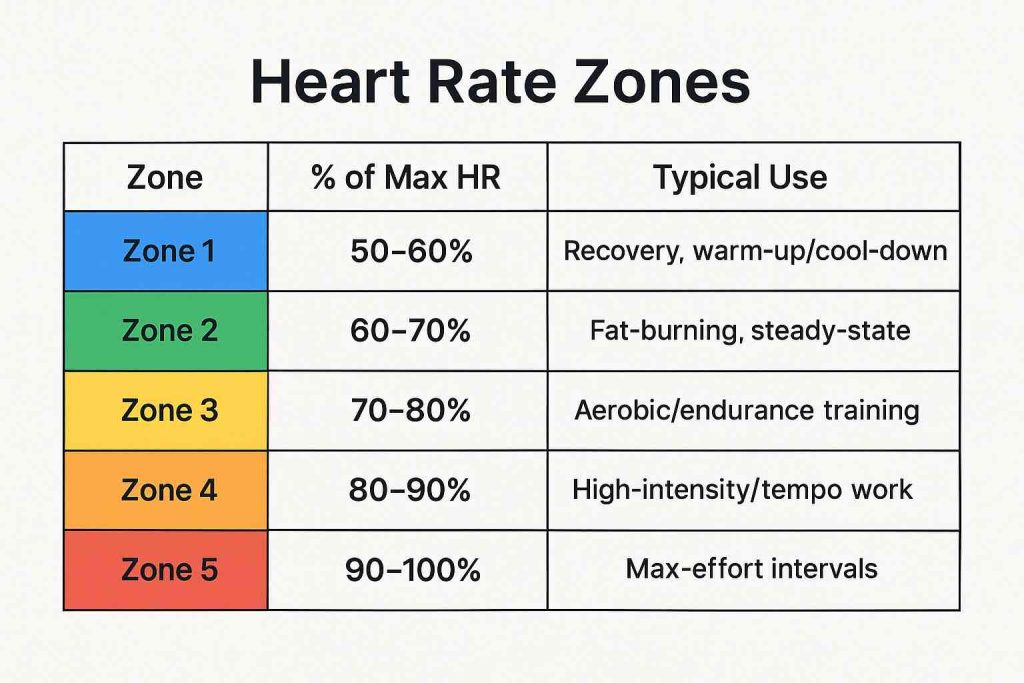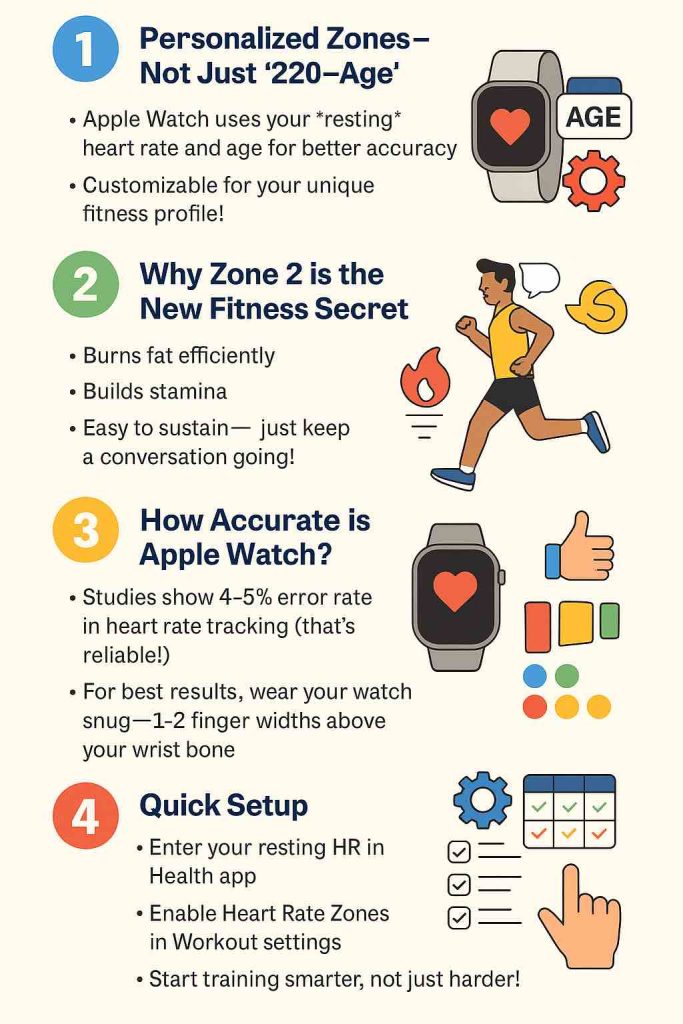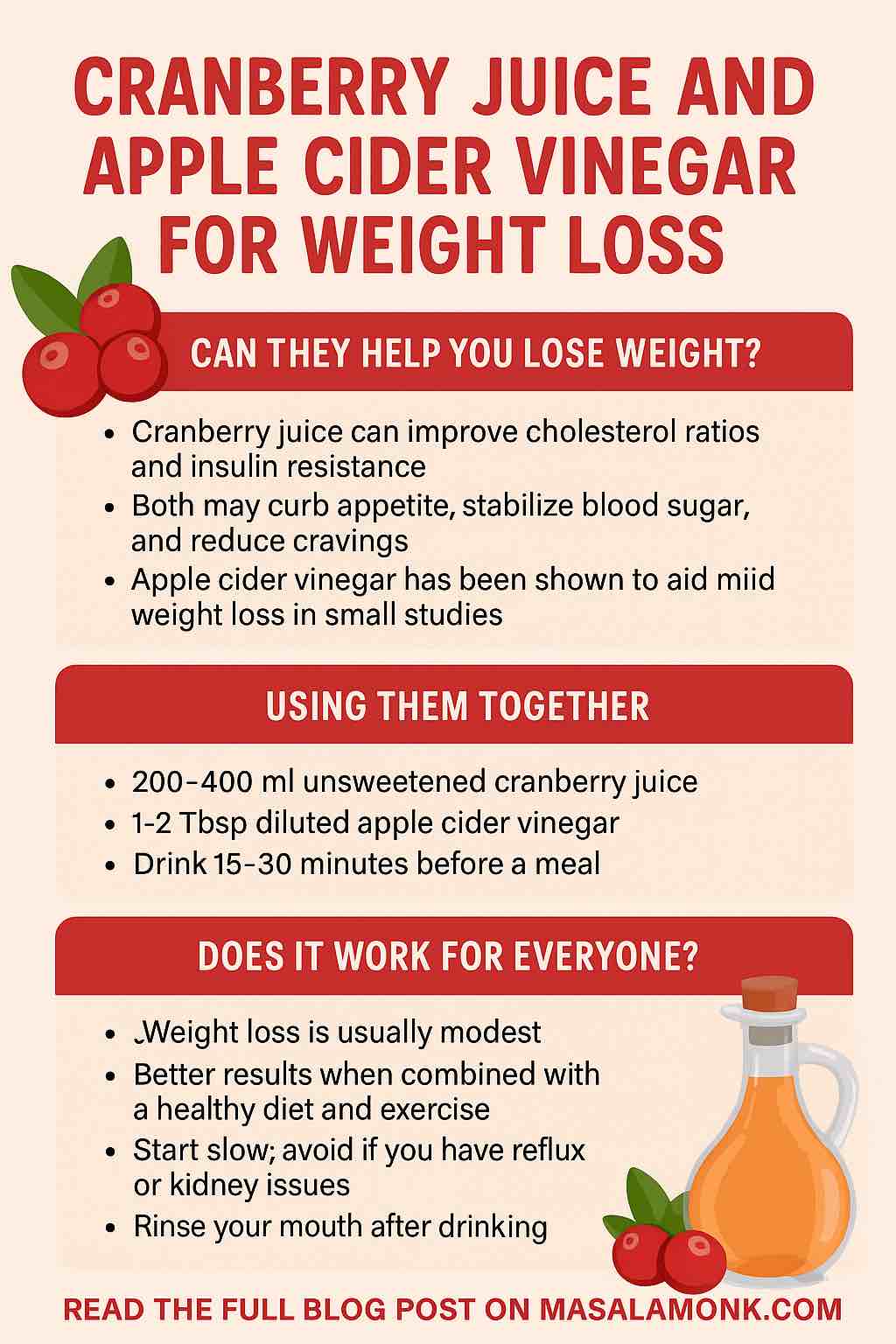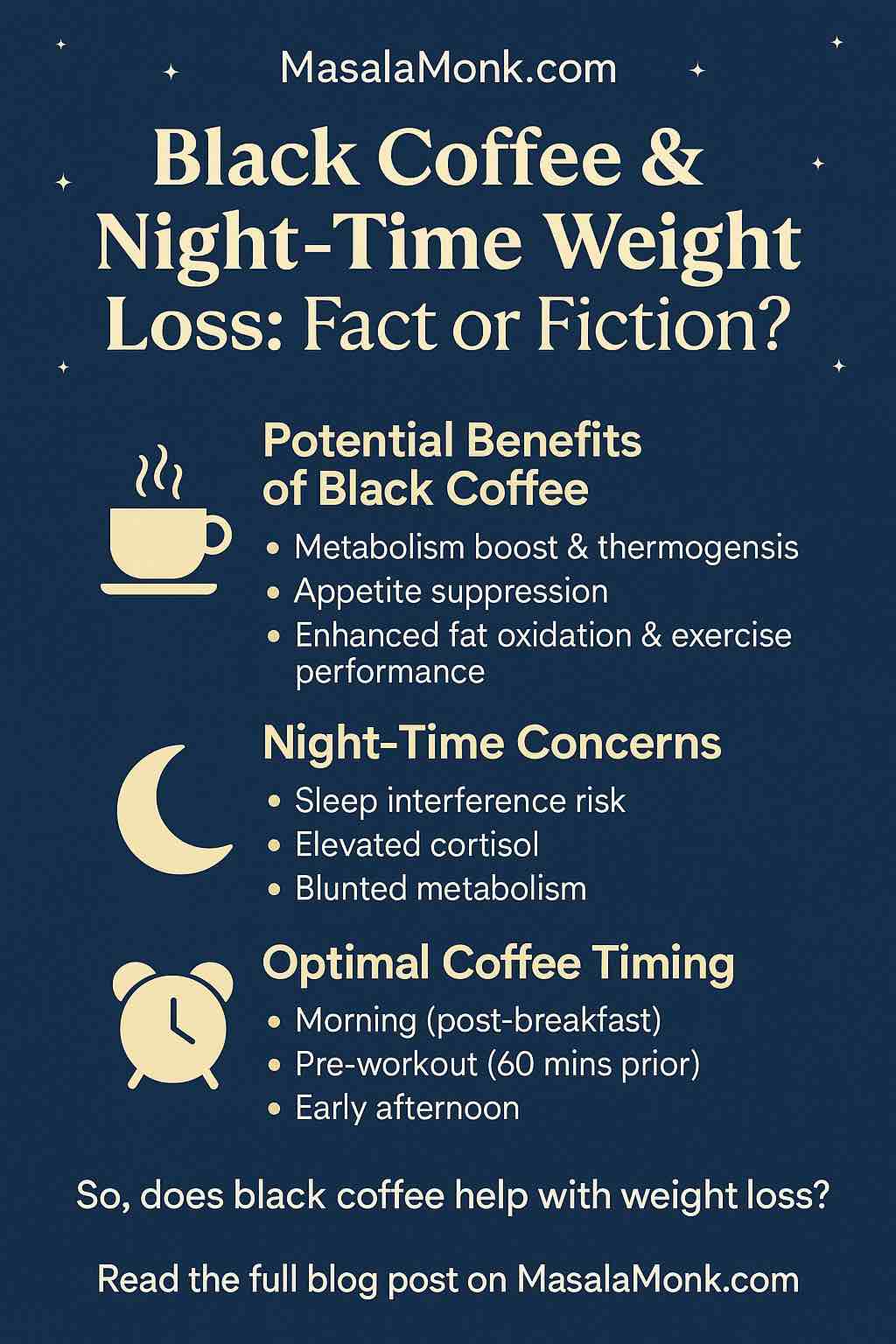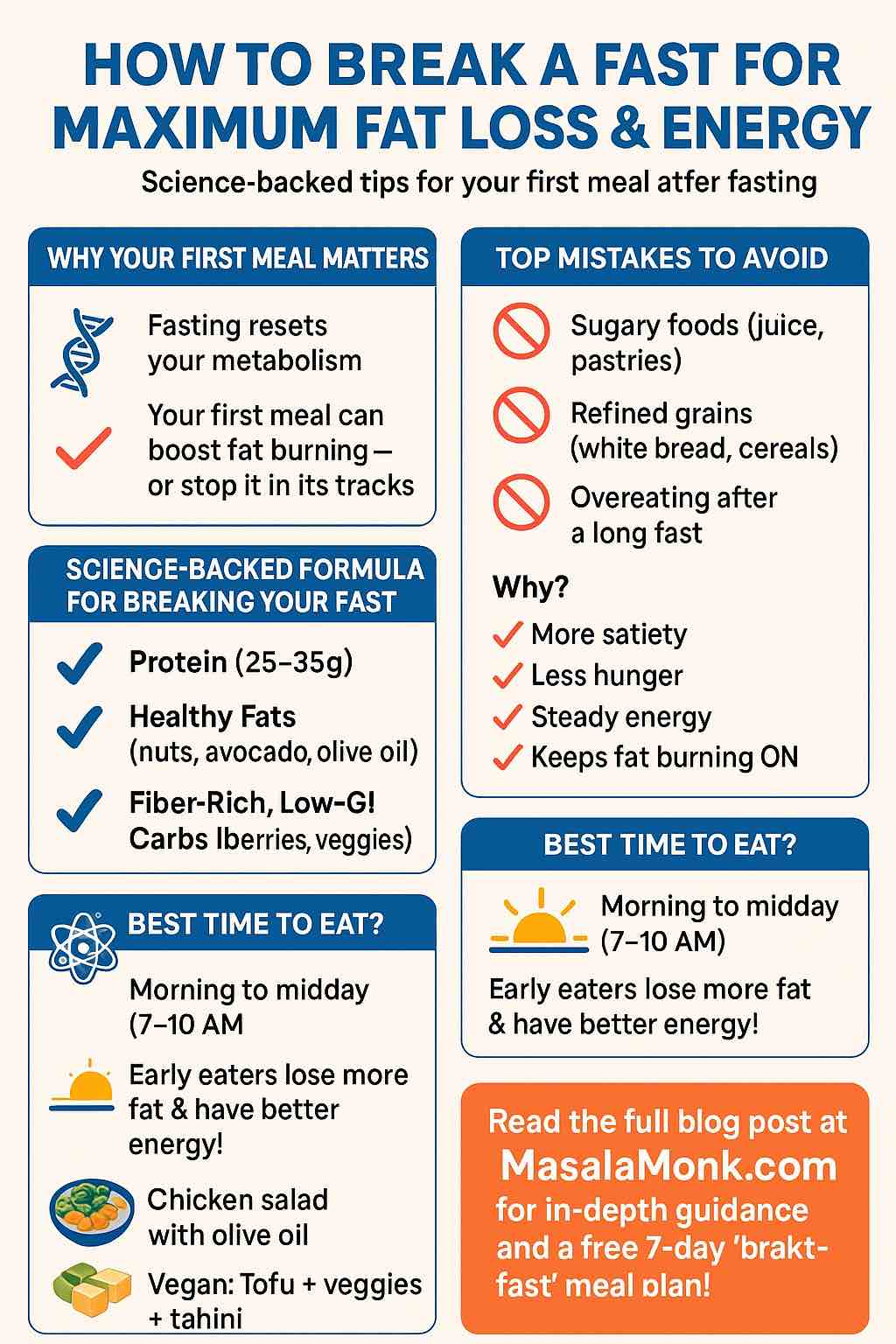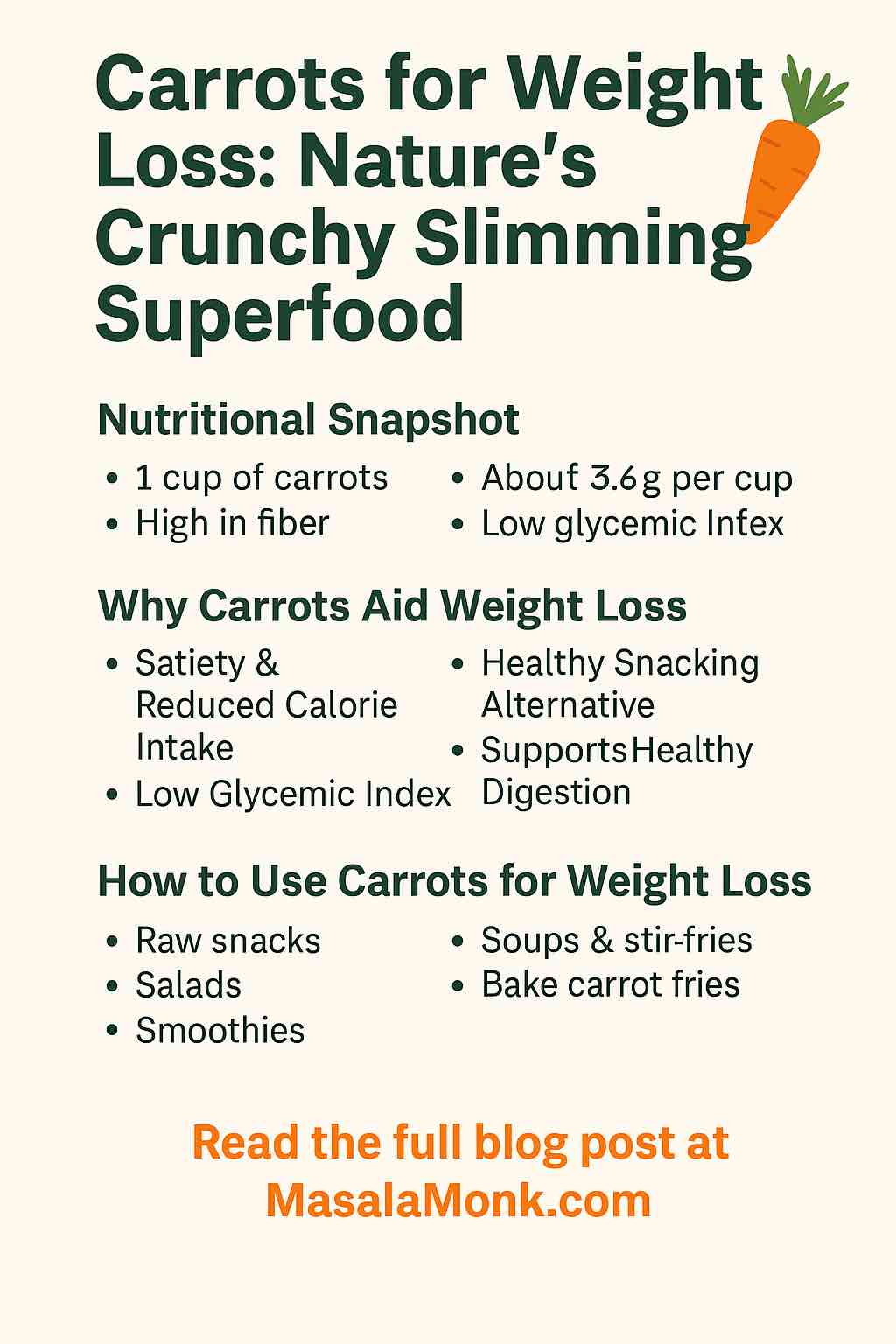
If you’re searching for a natural, tasty, and affordable way to support your weight loss journey, look no further than the humble carrot. Whether you like them raw, roasted, purple, orange, or even shredded into your salad, carrots are so much more than a lunchbox staple—they’re a nutritional powerhouse with science-backed benefits for weight management, gut health, and beyond. Let’s crunch into the details!
Why Carrots? The Nutritional Powerhouse
Carrots have a reputation for being good for your eyes, but they’re even better for your waistline. Here’s why:
- Low in Calories, High in Volume: One cup of raw carrots contains only about 50 calories—but fills you up thanks to its fiber and water content (carrots are about 88% water!).
- Rich in Fiber: With about 3.6 grams of fiber per cup, carrots slow digestion, promote fullness, and help keep those snack cravings at bay.
- Packed with Antioxidants: Orange carrots are loaded with beta-carotene (a vitamin A precursor). Purple and black carrots go a step further, containing anthocyanins—powerful plant compounds linked to weight and metabolic benefits.
- Blood Sugar Friendly: The glycemic index (GI) of raw carrots is low (~16), meaning they won’t spike your blood sugar and cause hunger rebound.
The Science: How Carrots Support Weight Loss
1. Satiety and Calorie Control
The fiber in carrots is your secret weapon against overeating. Studies show that fiber-rich veggies, like carrots, slow down digestion and trigger stretch receptors in your stomach, helping you feel full sooner and for longer.
Real-world tip: Eat a handful of carrot sticks 20 minutes before lunch or dinner (“veggie preload”). Research shows this can naturally reduce how many calories you eat at your main meal!
2. Gut Health: The Microbiome Connection
A 2025 animal study found that carrots fed to mice on a high-fat diet led to a healthier gut microbiome and better blood sugar control—without changing total calorie intake. Why does this matter? Because a happy gut microbiome is linked to easier weight management in humans, too.
3. Anthocyanins & Purple Carrots: Next-Level Benefits
Move over, orange—purple and black carrots contain anthocyanins, shown in observational studies to help with weight control and improved metabolic health. Roasted purple carrots, in particular, retain their antioxidant punch.
4. Small Changes, Big Impact
A 2024 study found that eating just baby carrots three times per week increased skin carotenoid levels (a marker of veggie intake and health) by over 10% in just one month. That’s a measurable change from a snack most of us love anyway!
Practical Ways to Eat More Carrots (and Love It)
1. Snack Smart
- Raw carrot sticks are perfect for dipping in hummus, Greek yogurt, or salsa.
- Make your own “carrot fries” by slicing and roasting with herbs—way lower in calories than potato fries.
2. Add Color to Your Plate
- Grate carrots into salads, slaws, and wraps.
- Toss purple carrot coins into roasted veggie trays for a rainbow of antioxidants.
3. Power Up Your Meals
- Add shredded carrots to oatmeal for natural sweetness and a vitamin A boost.
- Simmer chopped carrots into soups, stews, or even spaghetti sauce for extra fiber.
4. Try Carrot-Based Recipes
- Carrot Smoothie: Blend carrot, apple, spinach, and a splash of orange juice.
- Carrot & Lentil Soup: Fiber, protein, and comfort in a bowl.
- Carrot Muffins: Use whole wheat flour and minimal sugar for a healthy breakfast treat.
Carrots vs. Other Snack Foods (Why They Win)
| Snack (1 cup) | Calories | Fiber (g) | Sugar (g) | Nutrient Quality |
|---|---|---|---|---|
| Carrots | ~50 | 3.6 | ~6 | High |
| Potato chips | ~150 | 1 | 0 | Low |
| Pretzels | ~108 | 1 | 1 | Low |
| Grapes | ~104 | 1.4 | ~23 | Moderate |
Action Plan: How to Add Carrots for Weight Loss
- Start Small: Swap one daily snack for raw or roasted carrots.
- Preload Meals: Eat a cup of carrot sticks before lunch/dinner.
- Mix It Up: Try different carrot colors (orange, purple, black) for variety and antioxidants.
- Snack Prep: Pre-slice carrots and store in water in your fridge for grab-and-go snacking.
The Bottom Line
Carrots are an easy, delicious, and affordable addition to any weight loss plan. They fill you up, satisfy cravings, nurture your gut, and support long-term health in ways few foods can match. Whether you’re counting calories, carbs, or just looking to eat healthier, carrots belong in your kitchen and on your plate.
So next time you reach for a snack—make it a carrot. Your waistline (and taste buds) will thank you. 🥕
1. Are carrots really effective for weight loss?
Yes. Carrots are low in calories, high in fiber, and have a high water content, which helps keep you full with fewer calories. Scientific studies also show that adding carrots to meals or as snacks can help reduce overall calorie intake.
2. Can eating too many carrots make you gain weight?
Carrots are very low in calories, so it’s unlikely unless you eat excessive amounts with high-calorie dips or toppings. Moderation and balanced portions are always key.
3. Is there a difference between eating raw and cooked carrots for weight loss?
Both forms are healthy. Raw carrots are slightly lower in calories and have a lower glycemic index. Cooking can enhance the absorption of certain antioxidants (like beta-carotene) but may raise the glycemic index slightly—still low compared to many foods.
4. Do carrots have too much sugar for people with diabetes or on low-carb diets?
No. Carrots contain natural sugars, but their overall carbohydrate content and glycemic load are low. Most people with diabetes can safely include carrots in their diets. As always, individual needs may vary.
5. Can eating carrots turn my skin orange?
Only if consumed in extremely high amounts (several pounds daily for weeks). This is called carotenemia and is harmless and reversible. For most people, this is not a concern.
6. Are purple and black carrots better for weight loss than orange carrots?
Purple and black carrots contain extra antioxidants (anthocyanins), which have been linked in studies to metabolic health. However, all carrot colors are low in calories and high in fiber, making them great for weight loss.
7. How many carrots should I eat per day for health benefits?
A serving a day (about 1 cup or 2 medium carrots) is beneficial. Eating carrots a few times a week, even in snack-sized portions, has been shown to improve health markers.
8. Are baby carrots as nutritious as regular carrots?
Yes! Baby carrots are just regular carrots cut and polished into smaller pieces. The nutrient content is nearly identical.
9. What’s the best way to include carrots in my diet for weight loss?
Snack on raw carrots, use them in salads, soups, or as a veggie “preload” before meals to curb appetite. Roasted, boiled, and grated carrots all work—just avoid high-calorie dips or frying.
10. Can I juice carrots for weight loss?
Carrot juice contains many nutrients, but juicing removes most of the fiber, which is essential for satiety and blood sugar control. Eating whole carrots is generally better for weight loss.


